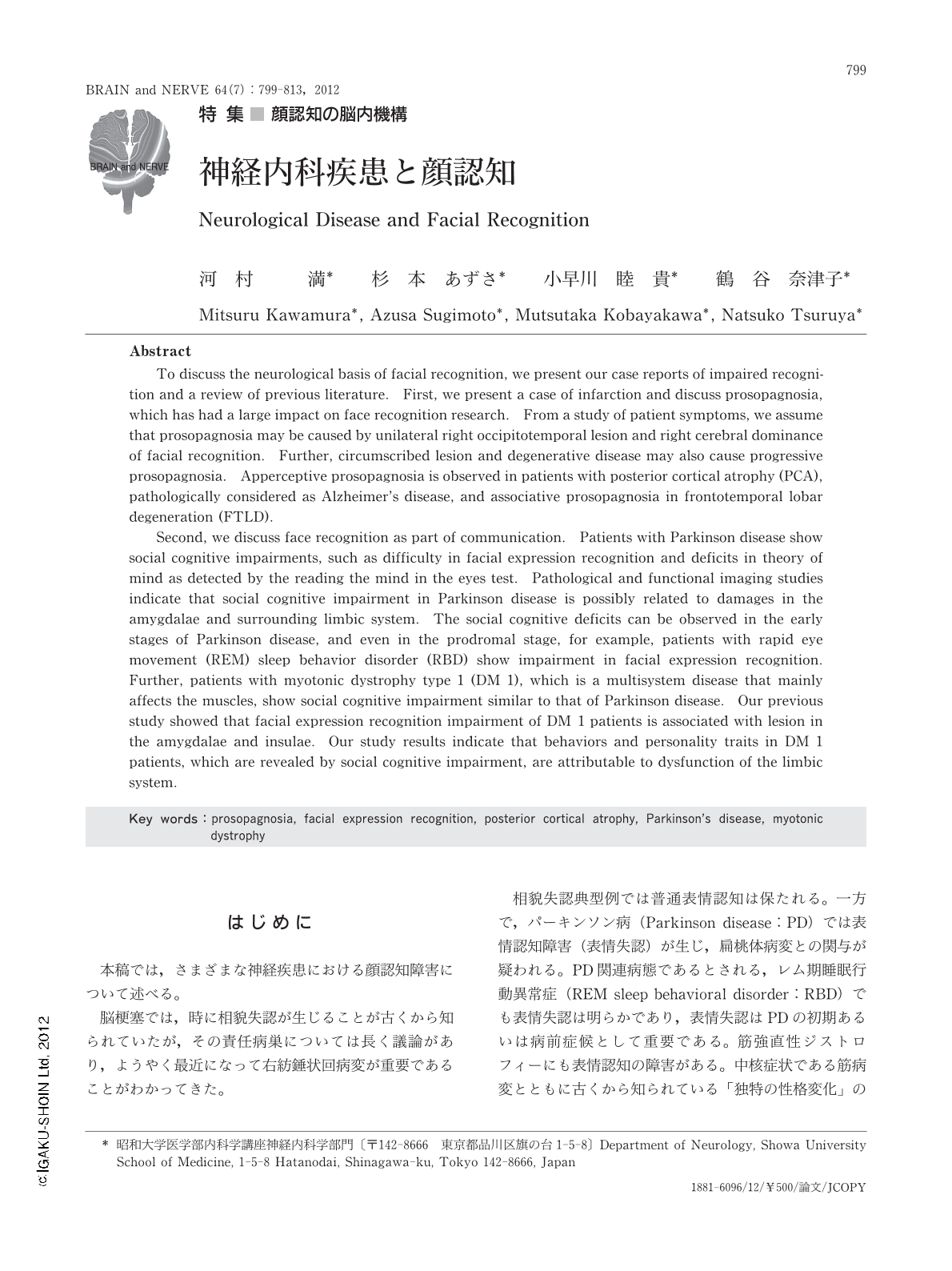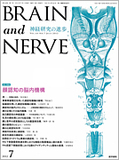Japanese
English
- 有料閲覧
- Abstract 文献概要
- 1ページ目 Look Inside
- 参考文献 Reference
はじめに
本稿では,さまざまな神経疾患における顔認知障害について述べる。
脳梗塞では,時に相貌失認が生じることが古くから知られていたが,その責任病巣については長く議論があり,ようやく最近になって右紡錘状回病変が重要であることがわかってきた。
相貌失認典型例では普通表情認知は保たれる。一方で,パーキンソン病(Parkinson disease:PD)では表情認知障害(表情失認)が生じ,扁桃体病変との関与が疑われる。PD関連病態であるとされる,レム期睡眠行動異常症(REM sleep behavioral disorder:RBD)でも表情失認は明らかであり,表情失認はPDの初期あるいは病前症候として重要である。筋強直性ジストロフィーにも表情認知の障害がある。中核症状である筋病変とともに古くから知られている「独特の性格変化」の背景には,表情失認をはじめとした社会的認知障害の存在が疑われる。
顔認知研究は学際的になされているが,神経内科領域でも重要で,その意義について疾患別に述べたいと思う。
Abstract
To discuss the neurological basis of facial recognition, we present our case reports of impaired recognition and a review of previous literature. First, we present a case of infarction and discuss prosopagnosia, which has had a large impact on face recognition research. From a study of patient symptoms, we assume that prosopagnosia may be caused by unilateral right occipitotemporal lesion and right cerebral dominance of facial recognition. Further, circumscribed lesion and degenerative disease may also cause progressive prosopagnosia. Apperceptive prosopagnosia is observed in patients with posterior cortical atrophy (PCA), pathologically considered as Alzheimer's disease, and associative prosopagnosia in frontotemporal lobar degeneration (FTLD).
Second,we discuss face recognition as part of communication. Patients with Parkinson disease show social cognitive impairments,such as difficulty in facial expression recognition and deficits in theory of mind as detected by the reading the mind in the eyes test. Pathological and functional imaging studies indicate that social cognitive impairment in Parkinson disease is possibly related to damages in the amygdalae and surrounding limbic system. The social cognitive deficits can be observed in the early stages of Parkinson disease,and even in the prodromal stage,for example,patients with rapid eye movement (REM) sleep behavior disorder (RBD) show impairment in facial expression recognition. Further,patients with myotonic dystrophy type 1 (DM 1),which is a multisystem disease that mainly affects the muscles,show social cognitive impairment similar to that of Parkinson disease. Our previous study showed that facial expression recognition impairment of DM 1 patients is associated with lesion in the amygdalae and insulae. Our study results indicate that behaviors and personality traits in DM 1 patients,which are revealed by social cognitive impairment,are attributable to dysfunction of the limbic system.

Copyright © 2012, Igaku-Shoin Ltd. All rights reserved.


